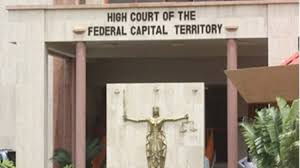The Federal High Court in Abuja has dismissed a N500 million suit filed by a lawyer on behalf of vulnerable residents of the Federal Capital Territory (FCT) against the Minister of the FCT, Nyesom Wike, and several federal agencies.
The claimants, allegedly including scavengers, beggars, and petty traders, sought compensation for what they described as the violation of their fundamental rights. However, Justice James Omotosho ruled that the suit lacked merit, citing a lack of credible evidence.
The judge held that the applicants relied solely on uncertified newspaper reports, which he described as inadmissible and hearsay under Nigerian law.
“You cannot simply print or purchase a newspaper and submit it as evidence in court without certification from the National Library,” he stated, warning that permitting such practices could lead to frivolous litigation based on unverified information.
Justice Omotosho further observed that the applicants failed to identify any specific officers responsible for the alleged violations, nor did they provide affidavit evidence to substantiate claims of unlawful arrest or detention.
“The court does not act on speculation,” he said. “The burden of proof lies squarely on the applicant, who has failed to establish any verifiable breach of fundamental rights.”
In a counter affidavit, the Minister of the FCT contended that the individuals concerned were operating illegally, engaging in public nuisance, vandalism, and serving in some instances as informants to criminal groups.
The judge agreed that while fundamental rights are important, they are not absolute and may be lawfully restricted in cases involving public order, health, or safety.
He also rejected the argument that begging was a protected right, citing both Islamic and Christian scriptures that discourage idleness and promote industriousness.
“There is no dignity in begging. The law and religious texts alike promote work over mendicancy,” he added.
The court acknowledged the existence of vocational centres in the FCT meant to rehabilitate vulnerable persons, stating that the refusal to take advantage of these facilities undermined the applicants’ case.
On the issue of damages, the judge questioned the mechanics of distributing any compensation, noting that the applicants failed to name or provide information about the supposed beneficiaries.
“Had this application succeeded, the money would likely have ended up in private hands, defeating the public interest it claimed to serve,” he said.
The suit, marked FHC/ABJ/CS/1749/2024, was filed in November 2024 by Abba Hikima, who claimed to represent the interests of homeless persons, scavengers, beggars, and petty traders allegedly targeted in an October 22, 2024 operation by a joint task force.
In addition to Wike, the respondents included the Inspector-General of Police, the Director-General of the DSS, the NSCDC, the Attorney-General of the Federation, and the Federal Government.
The respondents maintained that any actions taken were lawful and fell within the scope of enforcing the Abuja Environmental Protection Act.
(NAN)







